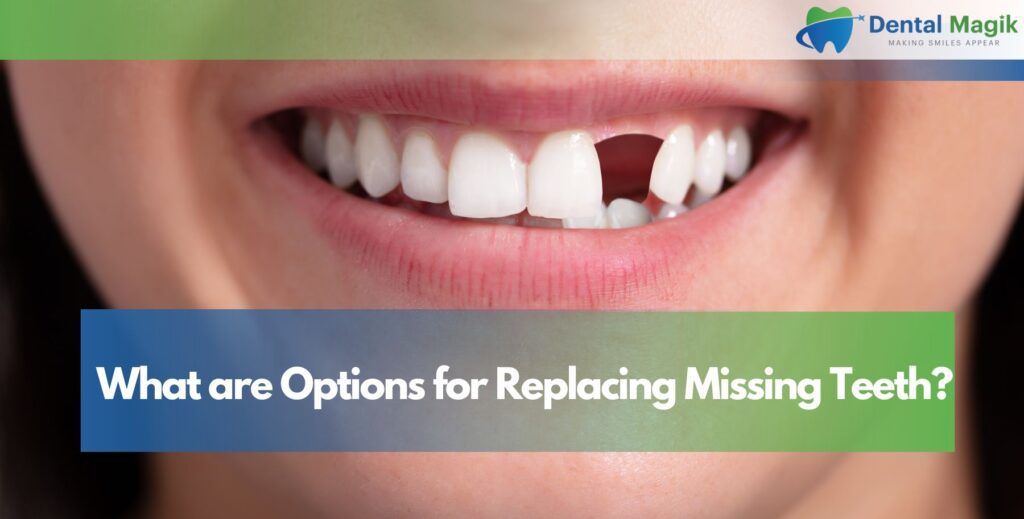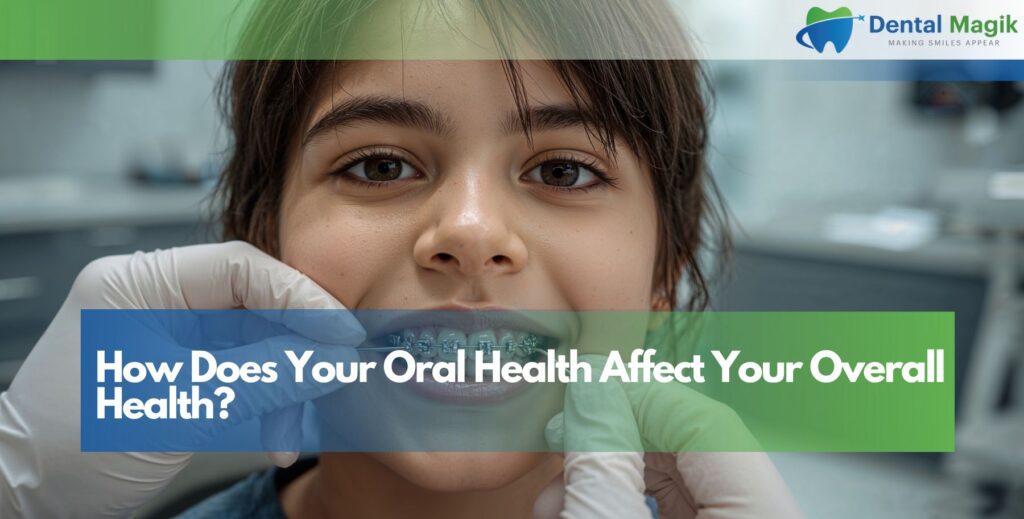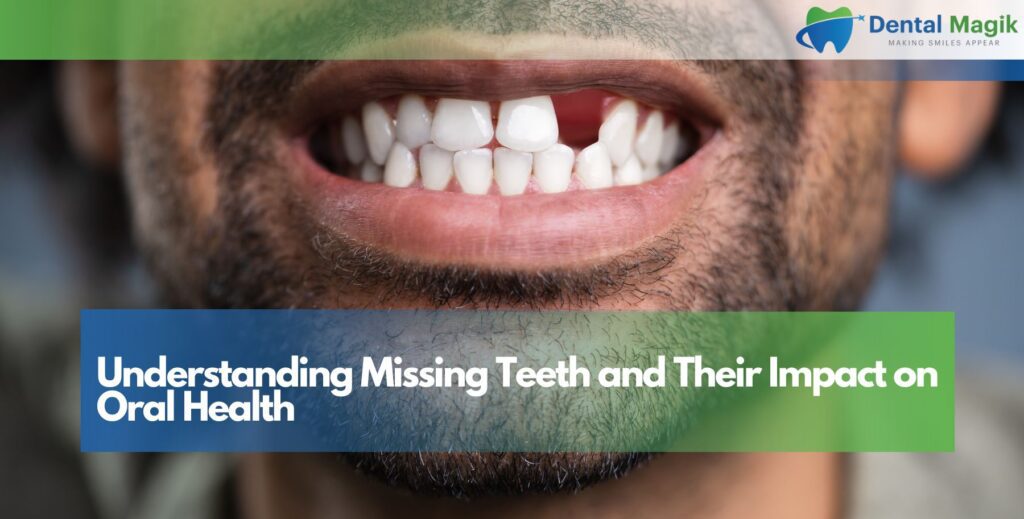Missing teeth can significantly impact your oral health, chewing ability, speech clarity, and smile confidence. Whether due to tooth decay, gum disease, trauma, or aging, tooth loss affects millions worldwide, leading to dental complications like jawbone loss or shifted teeth. Fortunately, modern dentistry offers several options for replacing missing teeth, from dental implants to dentures and bridges. These solutions restore oral function, enhance dental aesthetics, and prevent further dental issues. In this comprehensive guide, we’ll explore the best missing teeth replacement methods, their benefits, considerations, and how to choose the right one for your needs. Whether you’re seeking permanent tooth replacement or removable dentures, understanding these options can help you achieve a healthy smile and improved quality of life.
Table of Contents
Understanding Missing Teeth and Their Impact on Oral Health
Missing teeth are more than a cosmetic concern—they can lead to serious oral health problems if not addressed promptly. Replacing them is essential to maintain proper bite alignment, jawbone density, and overall dental wellness. Ignoring tooth loss can result in difficulties with eating, speaking, and even self-esteem issues due to an altered smile appearance.
Common Causes of Tooth Loss
Tooth loss often stems from preventable causes like advanced tooth decay, periodontal disease, or gum infections that weaken the supporting structures. Other factors include dental trauma from accidents, sports injuries, or grinding (bruxism), as well as genetic conditions or poor oral hygiene. In older adults, missing teeth may occur due to wear and tear or medical conditions like osteoporosis. Recognizing these causes highlights the importance of regular dental checkups to prevent tooth loss and explore early replacement options.
Consequences of Untreated Missing Teeth
Untreated missing teeth can cause jawbone deterioration, as the bone no longer receives stimulation from the tooth root, leading to a sunken facial appearance. Adjacent teeth may shift, creating misalignment and increasing the risk of cavities or gum disease. Chewing ability suffers, potentially leading to nutritional deficiencies, while speech clarity may be affected by gaps in the smile. Emotionally, tooth loss can diminish smile confidence, emphasizing the need for effective missing teeth replacement solutions to restore oral function and dental aesthetics.
Popular Options for Replacing Missing Teeth
Several tooth replacement options are available, each suited to different needs based on the number of missing teeth, budget, and lifestyle. From permanent solutions like dental implants to removable dentures, these methods offer reliable ways to restore your smile and oral health.
Dental Implants as a Permanent Tooth Replacement
Dental implants are widely regarded as the gold standard for replacing missing teeth, providing a long-lasting, natural-feeling solution. A dental implant consists of a titanium post surgically inserted into the jawbone, which fuses with the bone through osseointegration to act as an artificial tooth root. A custom crown is then attached, mimicking the look and function of a natural tooth.
This option excels in durability, often lasting a lifetime with proper dental care. Dental implants prevent jawbone loss by stimulating the bone, maintain bite alignment, and offer superior chewing ability compared to other methods. They’re ideal for single or multiple missing teeth, including full arch replacement with implant-supported dentures. However, the procedure requires sufficient jawbone density and may involve bone grafting if needed, making it a more invasive but highly effective tooth restoration choice.
Dental Bridges for Bridging the Gap in Missing Teeth
Dental bridges are a fixed tooth replacement option that literally bridges the gap created by one or more missing teeth. A traditional bridge consists of artificial teeth (pontics) anchored by crowns on the adjacent healthy teeth or implants. This provides a stable, non-removable solution that restores oral function and dental aesthetics.
Bridges are less invasive than implants and can be completed in a few dental visits, making them suitable for patients with strong supporting teeth. They improve chewing efficiency and prevent shifting of remaining teeth, but require healthy adjacent teeth for support. Cantilever bridges or Maryland bridges offer alternatives for specific cases, though they may not be as durable for back teeth. Overall, dental bridges provide a cost-effective way to replace missing teeth while maintaining a natural smile appearance.
Dentures as a Removable Option for Multiple Missing Teeth
Dentures are a versatile, removable tooth replacement for those with multiple missing teeth or complete tooth loss. Complete dentures replace an entire arch of teeth, while partial dentures fill gaps when some natural teeth remain. Modern dentures are custom-fitted for comfort and can be supported by implants for added stability (implant-supported dentures).
This option is affordable and non-surgical, ideal for patients who aren’t candidates for implants. Dentures restore chewing ability and speech clarity, but may require adjustments for fit and can slip if not secured properly. With proper dental care, dentures last 5-10 years, offering a practical solution for full mouth restoration and improved oral aesthetics.
Other Tooth Replacement Alternatives Like Flippers and Partial Dentures
For temporary or budget-friendly missing teeth replacement, options like dental flippers (acrylic partial dentures) or flexible partial dentures provide quick fixes. A flipper is a lightweight, removable appliance that replaces one or a few missing teeth, often used as an interim solution before implants or bridges. Flexible partials use nylon for a comfortable, metal-free fit.
These alternatives are less durable but offer immediate smile restoration and are easy to maintain. They’re suitable for patients awaiting permanent treatments or those with specific oral health needs. However, they may not provide the same chewing efficiency as fixed options, making them ideal for short-term tooth restoration.
Factors to Consider When Choosing Missing Teeth Replacement Options
Selecting the right option for replacing missing teeth involves evaluating several factors to ensure it aligns with your oral health, lifestyle, and budget. Consulting a dentist helps tailor the choice to your needs.
Cost of Tooth Replacement and Insurance Coverage
The cost of missing teeth replacement varies: dental implants are the most expensive ($3,000-$5,000 per tooth) due to surgery, while dentures ($1,000-$3,000) and bridges ($2,000-$5,000) are more affordable. Factor in long-term value—implants last longer, reducing future costs. Many dental insurance plans cover part of bridges or dentures, but implants may require additional financing. Discuss options with your dentist to find a budget-friendly tooth restoration solution.
Durability and Longevity of Dental Restoration
Durability is key for long-term oral health. Dental implants offer the highest longevity, often lifelong, with proper dental care. Bridges last 10-15 years, while dentures need replacement every 5-10 years. Consider your lifestyle—active individuals may prefer implants for stability. Maintenance, like regular dental cleanings, extends the life of any tooth replacement.
Aesthetic and Functional Benefits of Smile Restoration
Prioritize options that enhance dental aesthetics and oral function. Implants and crowns provide a natural look and feel, boosting smile confidence. Bridges offer seamless integration, while dentures restore full mouth function but may feel less natural. Evaluate how the choice affects chewing ability, speech, and overall healthy smile.
The Role of Professional Dental Care in Missing Teeth Replacement
Professional dental care is crucial for successful tooth replacement, from initial assessment to ongoing maintenance. A skilled dentist ensures the chosen option fits your oral health needs.
Choosing the Right Dentist for Tooth Restoration
Select a dentist with experience in implant dentistry, bridges, or dentures, backed by positive reviews and modern technology. In East Brunswick, NJ, many dental offices offer comprehensive consultations to guide your missing teeth replacement journey.
Post-Treatment Dental Maintenance for Long-Term Success
After tooth replacement, maintain oral hygiene with brushing, flossing, and regular dental visits. Professional cleanings prevent gum disease and ensure durability. Your dentist will monitor for issues like implant failure or denture adjustments.
Conclusion
Exploring options for replacing missing teeth reveals solutions like dental implants, bridges, and dentures that restore oral function, prevent jawbone loss, and enhance smile aesthetics. By considering factors such as cost, durability, and aesthetic benefits, you can choose the best tooth replacement for your needs. Professional dental care ensures successful smile restoration and long-term oral health. If you’re dealing with tooth loss in East Brunswick, NJ, consult a trusted Dentist in East Brunswick, NJ for expert guidance and personalized treatment.
FAQs
What is the best permanent tooth replacement option?
Dental implants are often the best for permanent tooth replacement, offering durability, natural feel, and jawbone preservation.
How much do dentures cost for multiple missing teeth?
Dentures typically cost $1,000-$3,000, depending on type (complete or partial) and materials, with implant-supported dentures being higher.
Are dental bridges a good missing teeth replacement for front teeth?
Yes, dental bridges provide a natural smile appearance and are ideal for front missing teeth, though implants offer more longevity.
Can dental implants prevent jawbone loss?
Yes, dental implants stimulate the jawbone like natural teeth, preventing jawbone loss and maintaining facial structure.
How long do tooth replacement options like bridges last?
Dental bridges last 10-15 years with proper dental care, while dental implants can last a lifetime.# What are Options for Replacing Missing Teeth?






